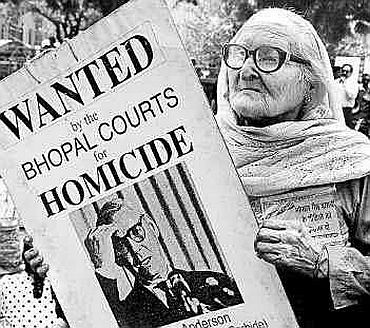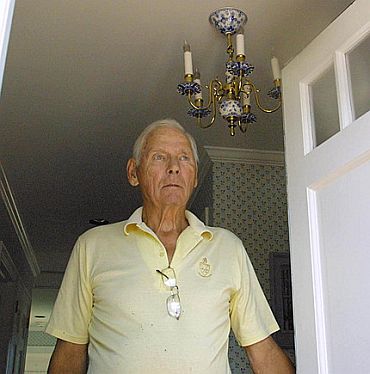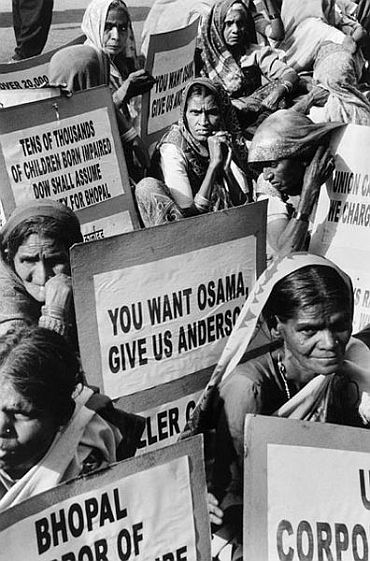Photographs: Reuters
The circumstances under which United Carbide Chief Warren Anderson suddenly fled the country after he arrived in the aftermath of Bhopal Gas Tragedy will continue to remain in mystery with the Mahanagar Telephone Nigam Limited, which could also have thrown some light, unable to provide phone call details.
The state-owned telephone company has expressed its inability to provide records of call details between the Prime Minister's Office (PMO) and the US government during the days immediately after the tragedy on the intervening night of December 2-3, 1984, saying such information prior to 1997 are "not available" with it.
Any information given on the issue might have thrown some light on the circumstances of the controversial departure of Anderson after the PMO said it has no records of phone calls received from any US government official during the period of Anderson's visit--December 6-7, 1984.
...![]()
How Anderson fled: Even phone records don't exist
Image: File photo of AndersonThe Special Protection Group (SPG) has also refused to give any information on the issue saying they have been exempted from making any disclosure under the Right to Information Act.
Anderson reached Bhopal from the US nearly three days after the gas tragedy struck the city.
Upon his arrival, he was arrested by local police and later granted bail by a local court.
But Anderson managed to flee the country on December 7 and remained evasive since then.
He was allowed to use the aircraft of Madhya Pradesh government to come to Delhi from Bhopal from where he returned to the US.![]()
How Anderson fled: Even phone records don't exist
Photographs: Obi/Wikimedia Commons
MTNL has said Customer Support Management System (CSMS) was only installed on April 1, 1997 in the Central area, which covers the South Block office. Hence, call records prior to that are not available.
"As the CSMS system was introduced on April 1, 1997 in the Central Area, the CDR (Call Detail Records) of any telephone prior to April 1, 1997 are not available in the office," said MTNL's Central Public Information Officer in reply to a RTI query made public on Tuesday.
The RTI applicant has sought to know from the PMO the details of calls made or received from US government officials in the aftermath of Bhopal gas tragedy during Anderson's controversial visit to the country, three days after the tragedy, which has claimed the lives of 15,000 people.
The PMO had forwarded the application to Department of Telecommunication (DoT) and SPG to provide the information, if there was any. ![]()




article